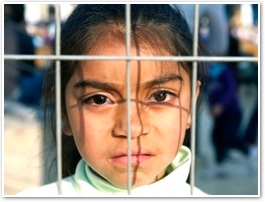U.S. border policy morally wrong
- FATHER RAYMOND J. DE SOUZA
This column does not often do moral philosophy, but the recent controversy over family separation at the American-Mexican border offers an opportunity to do just that.
 The Trump administration policy of criminally charging illegal entrants and thus separating them from their children was widely denounced as not just unwise but immoral. Why?
The Trump administration policy of criminally charging illegal entrants and thus separating them from their children was widely denounced as not just unwise but immoral. Why?
Separating children from their criminally charged parents of course is routine. In Canada, if parents are charged with a crime and denied bail — hence detained — then their children will be separated from them during the time of detention. The children are not detained along with the parents. If children had to remain with their parents, and children could not be remanded, then no parents could be detained, either before or after trial.
So "family separation" in the criminal justice system is not immoral, but necessary. At the border it is more painful, as the children have to be taken into separate temporary custody; the alternative of going to stay with family and friends is rarely possible.
The Trump administration decision to charge all those entering illegally set in motion the process of detention for the parents and their separation from their children. That is not an altogether new policy, but rather the more strict application of existing law. Going from lax enforcement to strict enforcement is not obviously immoral, if the existing law itself is morally just. Few dispute that laws that regulate entry are just laws.
So why then the widespread recognition that something was morally awry at the border? It can't just be that the scenes were heartrending. Heart-rending outcomes can be morally correct.
A helpful clarification comes from traditional moral philosophy — the analysis of whether an act is morally good or evil. Every conscious, voluntary act has two aspects: its "object" or what is being done, and the intention of the one doing it. Both have to be good for an act to be morally good.
Giving alms to the needy is a morally good "object." To do so in order to alleviate their suffering, or as a sign of solidarity, or to achieve a more just distribution of wealth — all these would be morally good intentions. But the same act of almsgiving, if done for a morally bad intention — to curry favour with the volunteer administrator of the program, who also happens to be a building inspector who needs to approve a permit application — can become a morally bad act. Same object, different intention.
It also means that a good intention cannot make a morally bad object good. There are more sophisticated refinements of course, and some cases are very complex, but the distinction serves the moral analysis of what was happening at the border.
The Trump administration announced that there would be "zero tolerance" in border enforcement; all those entering illegally would be charged. That, in itself, does not obviously constitute a moral problem — even if the policy is unwise.
Charging parents who arrive with their children produces a foreseeable consequence: the parents are detained and the children do not go into detention with them, but are separated to be kept in short-term custody for release. That consequence, though foreseeable, is not the intention of the policy. The intention of the policy is enforcing border laws, not family separation.
To be sure, the foreseeable — even if unintended — consequences have to be taken into account. One way to test whether consequences are truly unintended is whether the actor makes effects to minimize them — which did not appear to be the case at the border. But leave that aside.
A key change was that the Trump administration announced that the separation of children would itself prove a deterrent to would be illegal entrants.
A key change was that the Trump administration announced that the separation of children would itself prove a deterrent to would be illegal entrants. The foreseeable but unintended consequence thus became a foreseeable, intended and desired means to achieve the object of enforcement of border laws.
That makes a considerable difference in the moral analysis. Family separation went from a regrettable side effect to the desired means. That's why the new policy was widely recognized as immoral.
There is a broader point for criminal justice. The immediate effects of laying a charge are many: bail payment and restrictions or remand if bail is denied, family separation, confiscation of property, seizure of evidence, in some cases even suspension of employment. All this for those who are still innocent before the law. They can be the unintended consequences of laying the charge. But, as at the border, they can be used precisely as a chosen means of pretrial punishment. That is why what happened at the border was wrong. We should be attentive when it happens elsewhere.
 This is J. Fraser Field, Founder of CERC. I hope you appreciated this piece. We curate these articles especially for believers like you.
This is J. Fraser Field, Founder of CERC. I hope you appreciated this piece. We curate these articles especially for believers like you.
Please show your appreciation by making a $3 donation. CERC is entirely reader supported.

Acknowledgement
 Father Raymond J. de Souza, "U.S. border policy morally wrong." National Post (June 29, 2018).
Father Raymond J. de Souza, "U.S. border policy morally wrong." National Post (June 29, 2018).
Reprinted by permission of the National Post.
The Author
Father Raymond J. de Souza is the founding editor of Convivium magazine.
Copyright © 2018 National Post

